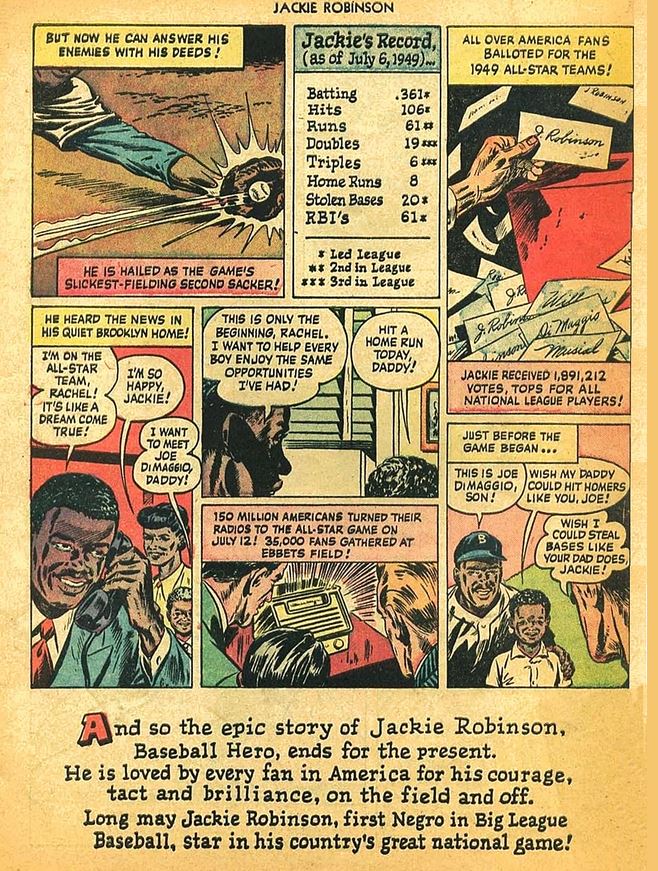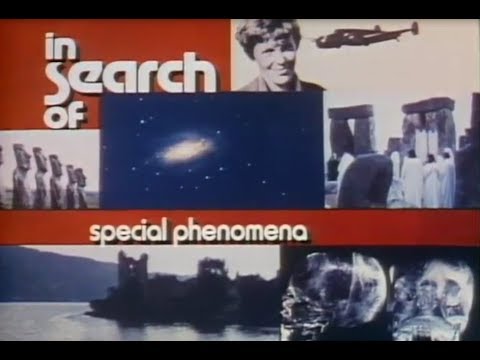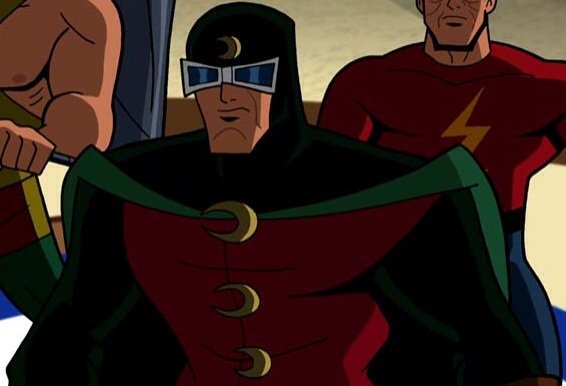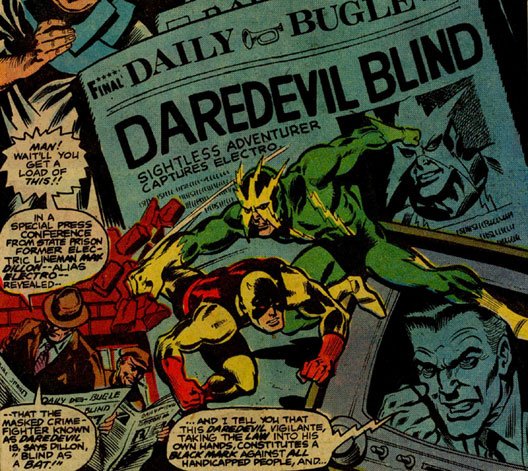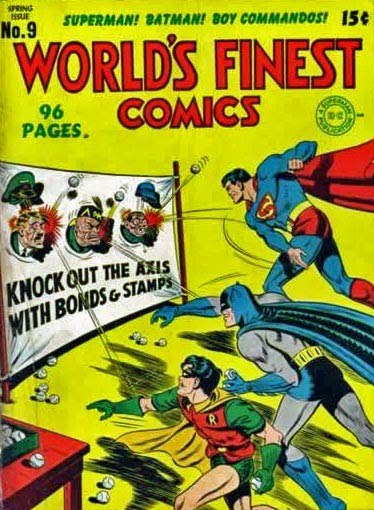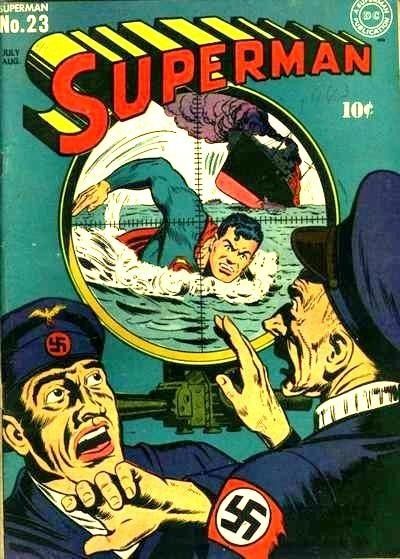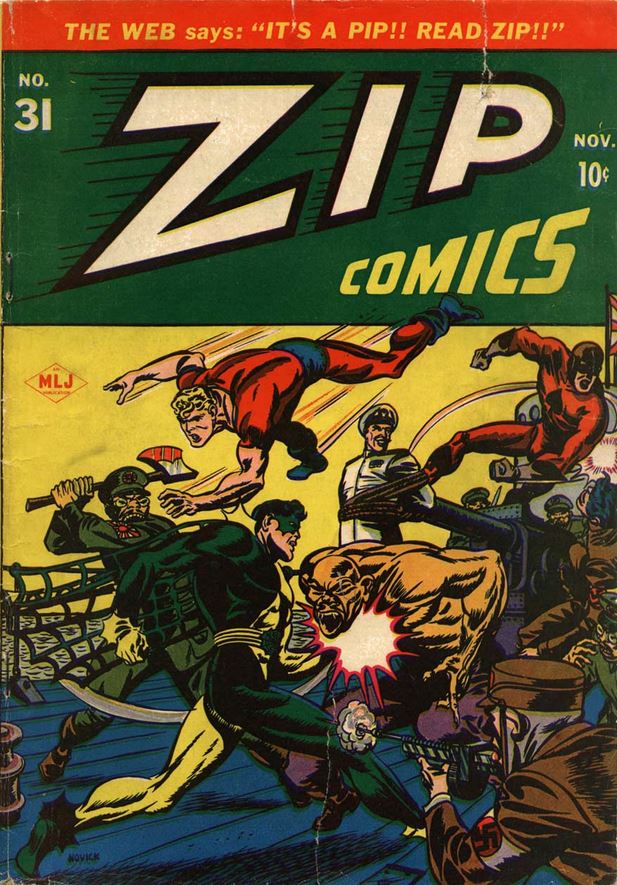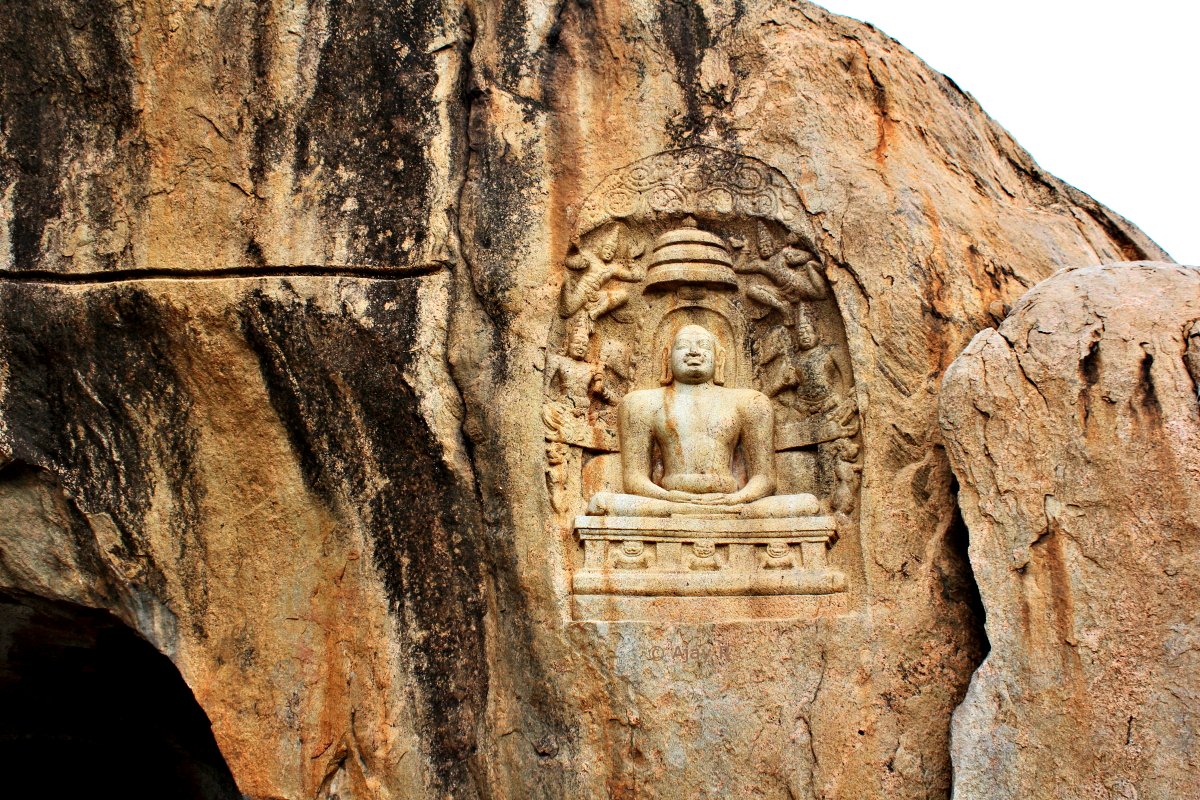A look at the 1949 Jackie Robinson Comic Books, by Fawcett Publications,
Its notable for being in stark contrast to much of the harsh stereotyping common in the Golden Age of Comics
Thanks to @ComicsintheGA for inspiring this
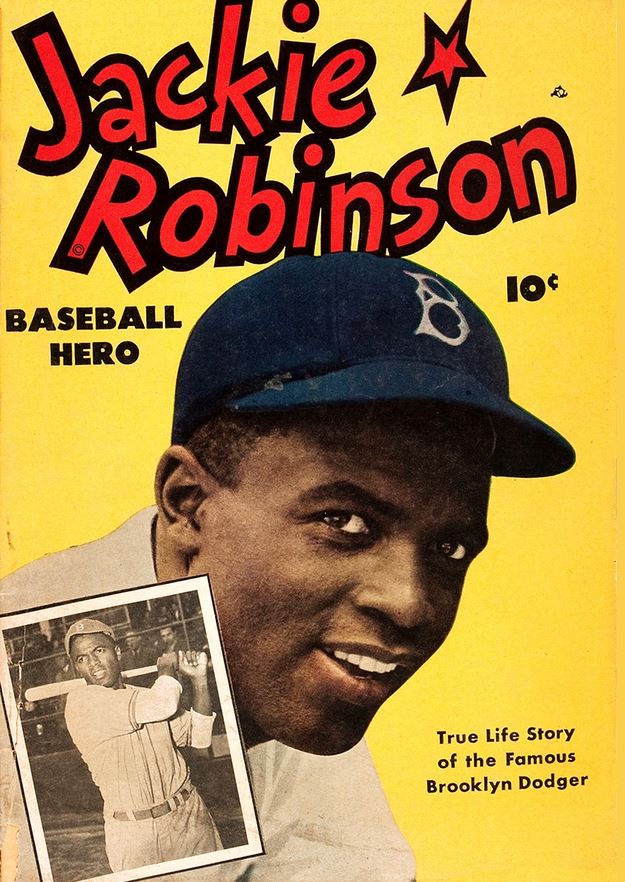
Fawcett is best known today for creating the character of the original Captain Marvel in Whiz Comics (Named for Captain Billy's Whiz Bang)
This is a storied character, later incorporated into DC comics. He's got a movie coming out this Spring
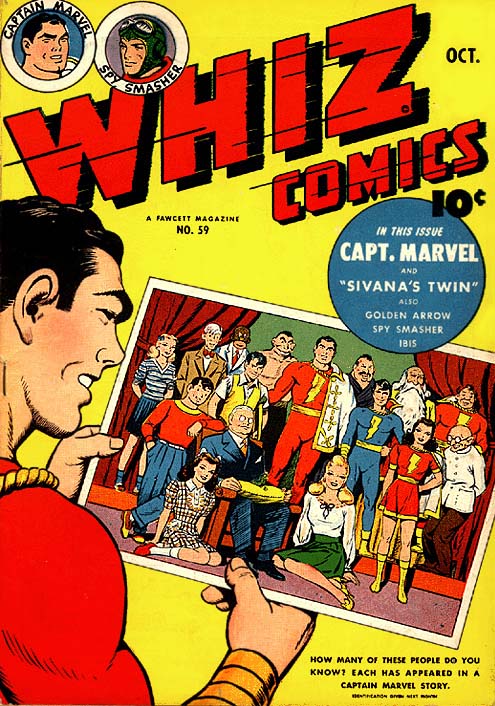
Captain Marvel helped shape what modern comics look like, including a family of related heroes, and a league of evil-doers - The Monster Society of Evil, led by Mr Mind
DC has wrestled with what to do with that historic serial
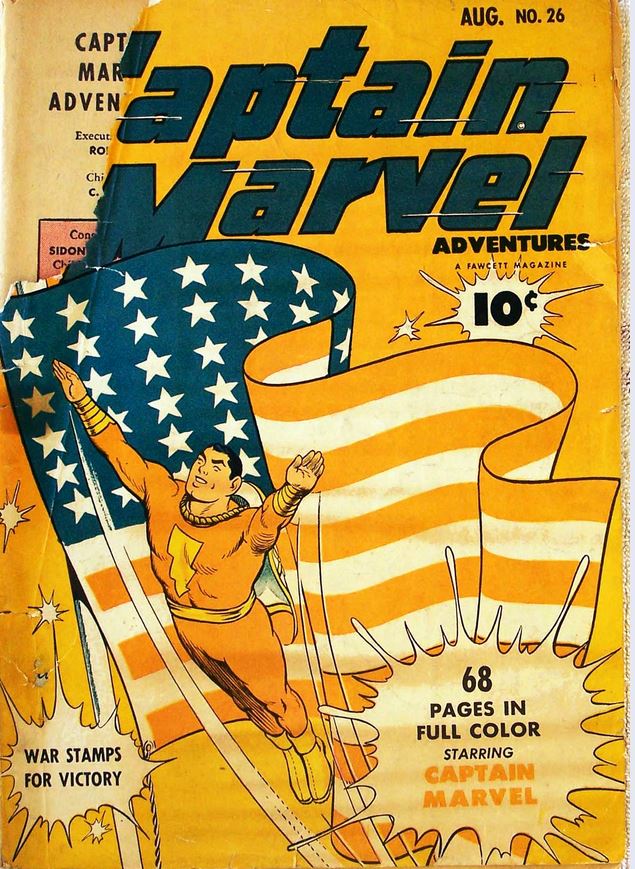
In this issue, Captain Marvel meets Mr Mind (although he doesn't realize it).
Unfortunately, the same comic is plagued with racial stereotypes. To date, DC is opting to not reprint the storyline.
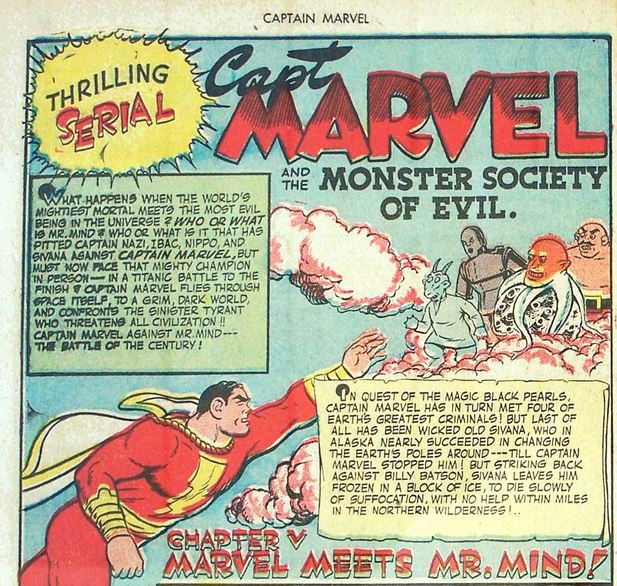
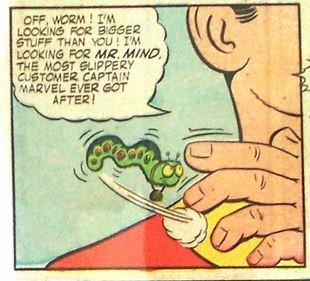
For me, the 1949 Jackie Robinson comic stands in stark contrast to the stereotyping common during the Golden Age of Comics
To illustrate this, I've included an *edited* panel where I removed "Steamboats" head. You can guess its features
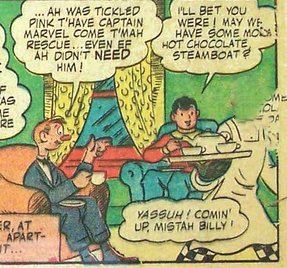
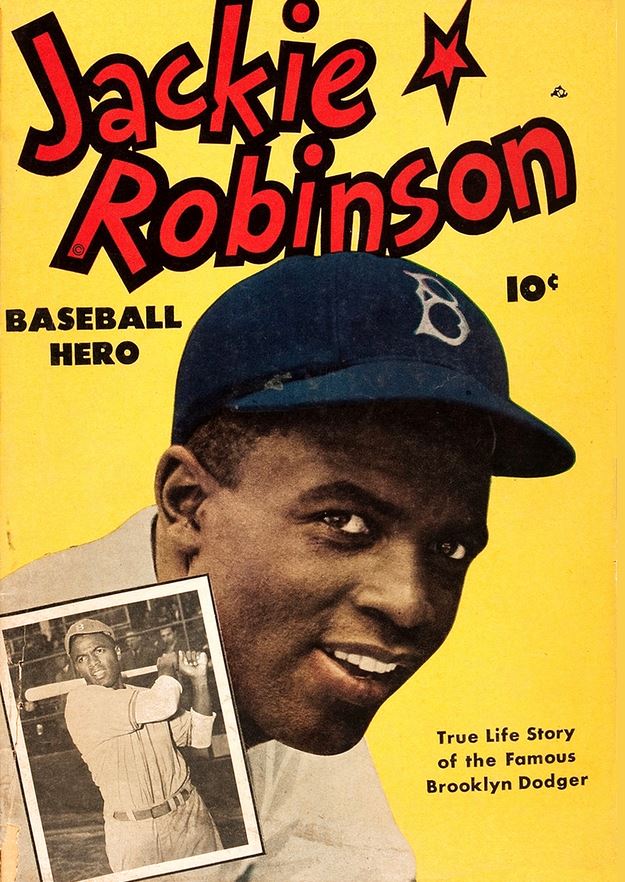
Instead of some caricature, the Jackie Robinson comic - from the same publisher, Fawcett, just a few years later - is dignified, 'a baseball hero'.
It even begins with Jackie speaking as a role model, "Hello Kids"
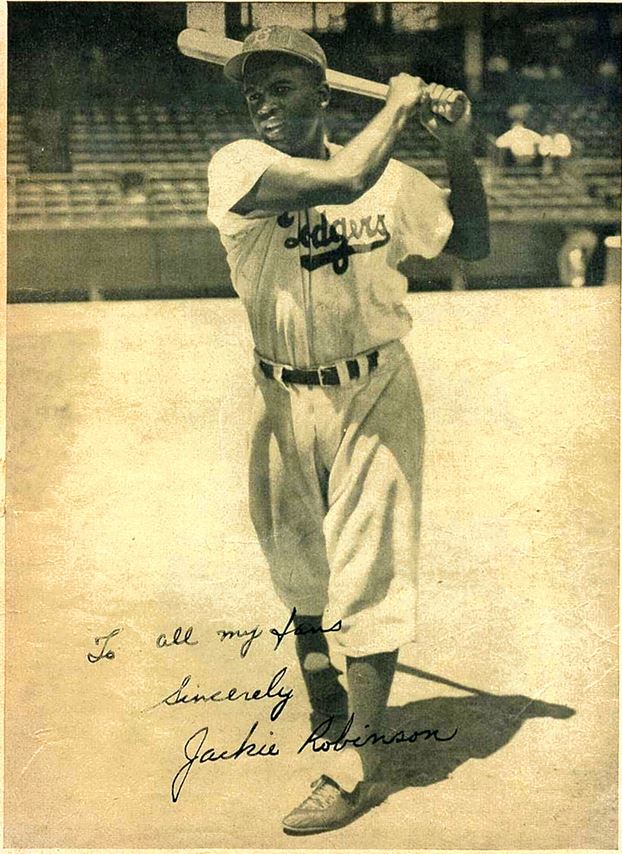
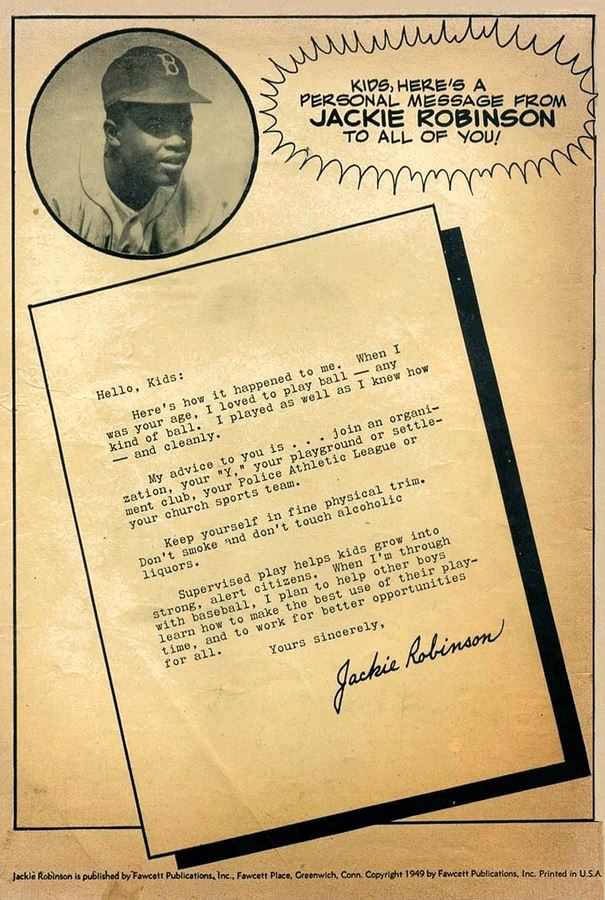
I know the panel I included and edited can be hurtful, but it helps to put the Jackie Robinson comic in perspective.
The first issue begins calling him the Marvel of the Baseball Diamond (and remember Fawcett published Captain Marvel)
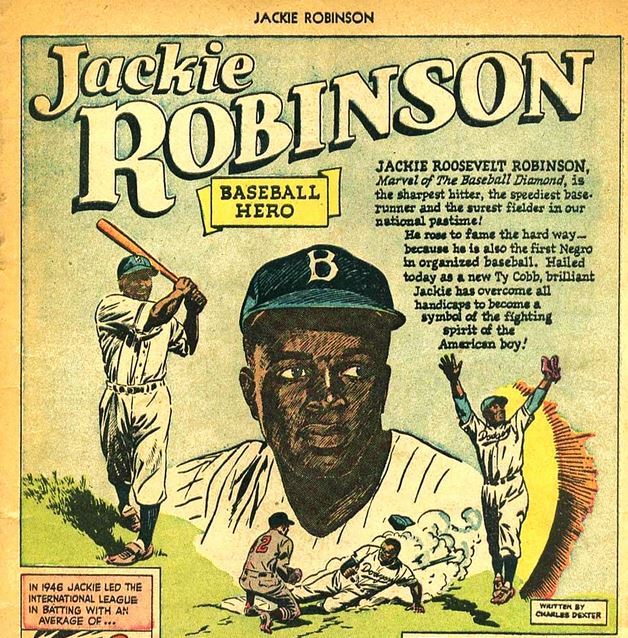
1949 Fawcett Jackie Robinson comic, hailing him as "Brilliant Jackie has overcome all handicaps to become a symbol of the fighting spirit of the American boy"
That's awesome.
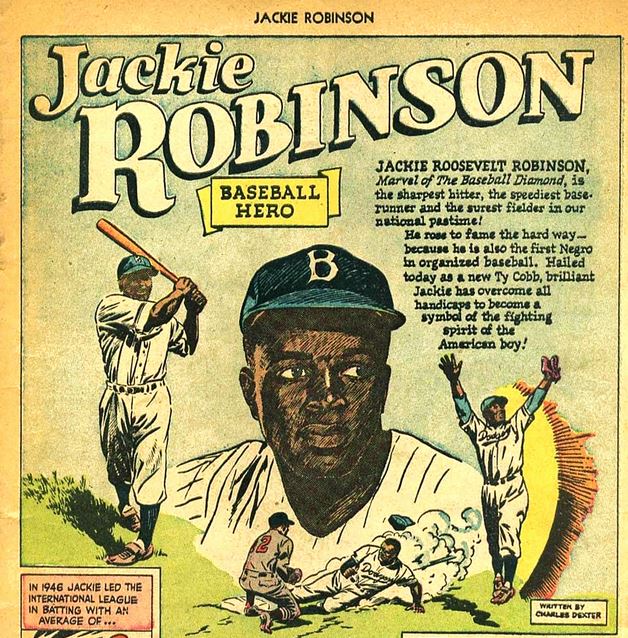
The issue is "written by Charles Dexter"
I don't know anything about who this was. If anyone does, let us know
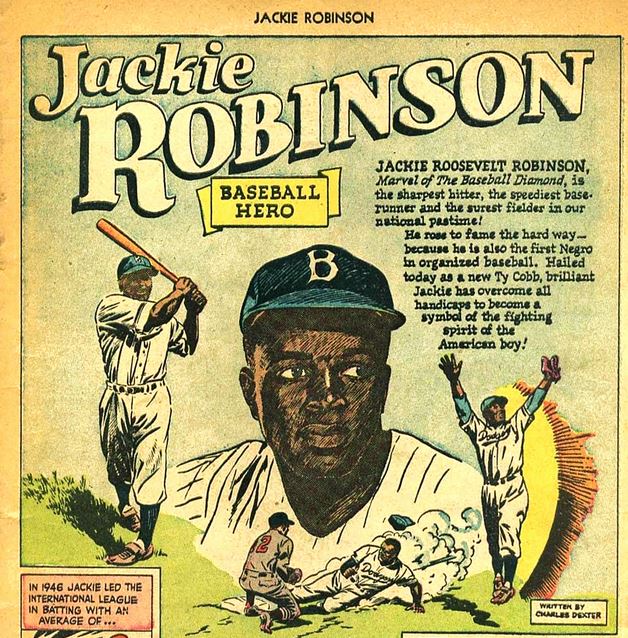
The story begins with Jackie being an excellent student and athlete (and his brother Mack too)
Jackie has to weight options given the barriers he faced.
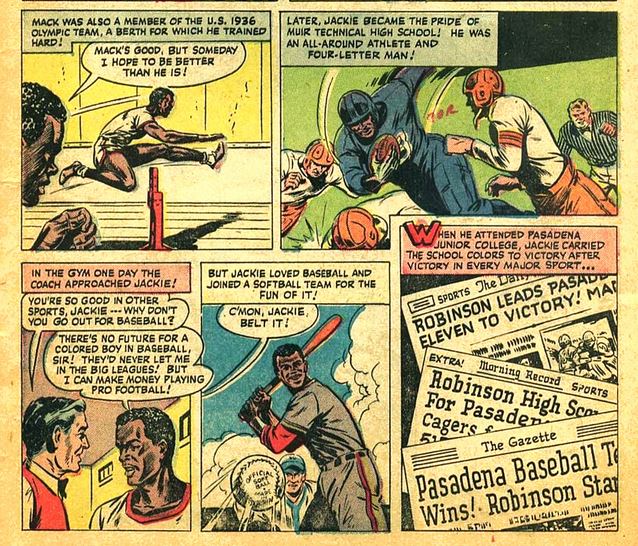
Young Jackie Robinson becomes a sports sensation at UCLA, finds love, weighs his options -- but then Dec 7th, 1941 happens - and they
puts asides thoughts of their own happiness for the sake of their beloved country
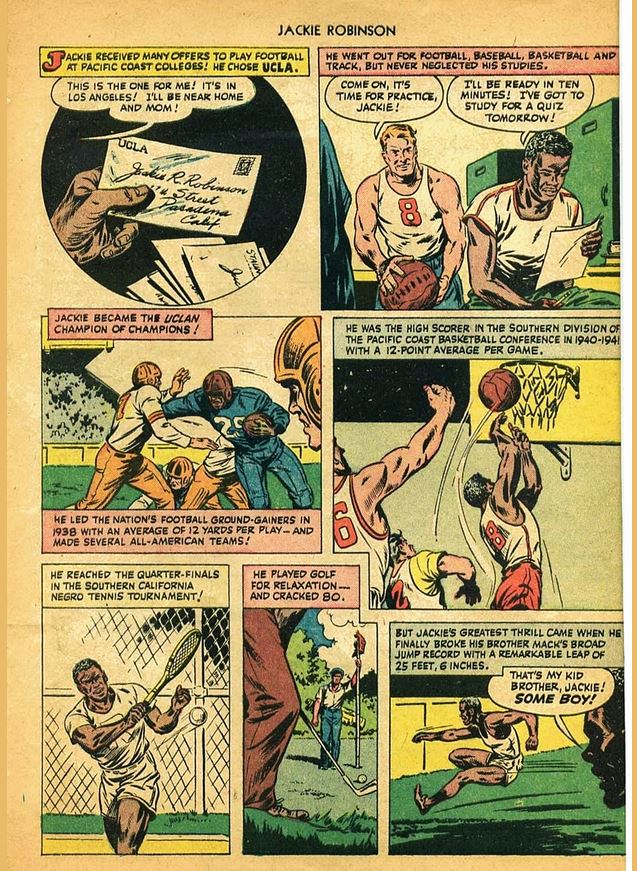
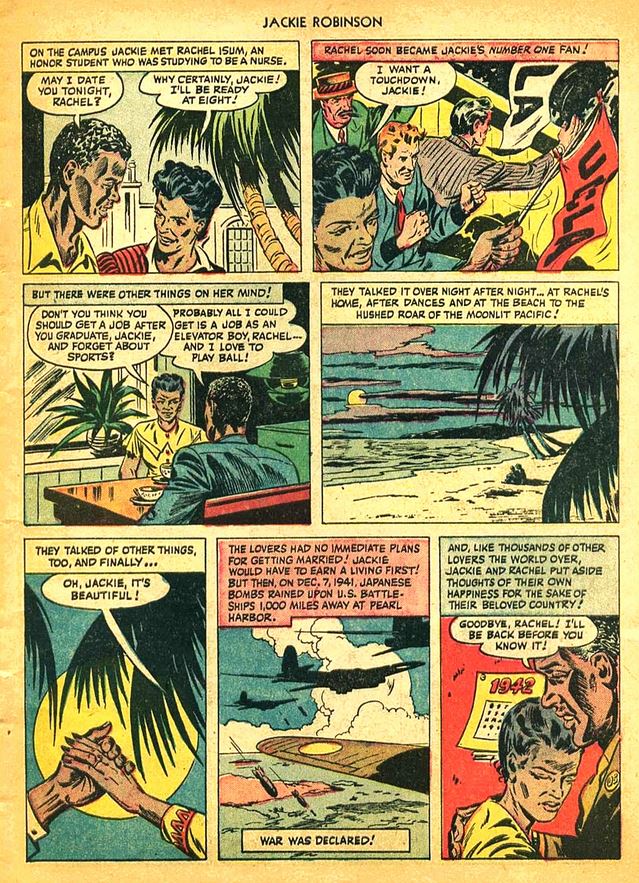
Jackie Robinson is discharged in late 1944, and joins the Kansas City Monarchs of the Negro League
Then the Brooklyn Dodgers call - and Jackie is faced with both hope and hostility, as seen in the 1949 Fawcett comic
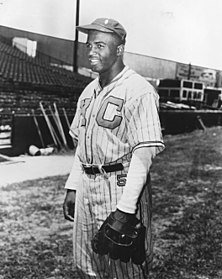
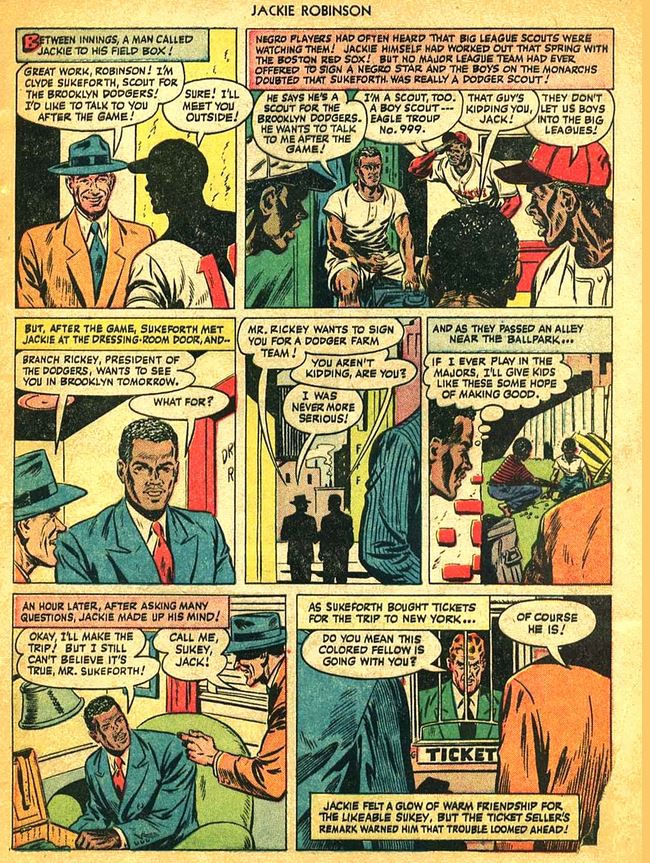
Fawcett then gives Branch Rickey his due for his courage. Baseball fans can probably tell us more of the behind the scenes here.
We get a panel of Jackie signing on board, and mention of the Jim Crow code
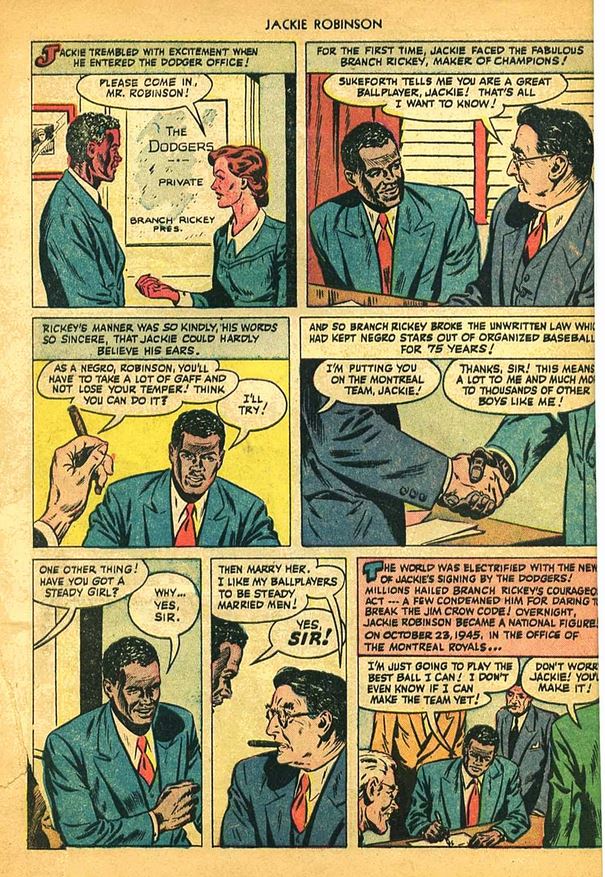
The comic then puts the hostility out front, with hate mail from the Klan and 'moguls rumbling'. In training camp in Florida, Jackie Robinson rooms with a local family because the hotel the team is staying out won't allow him to stay
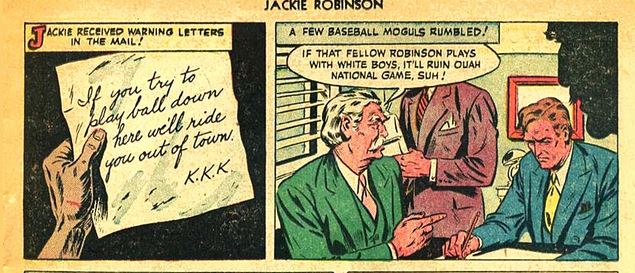
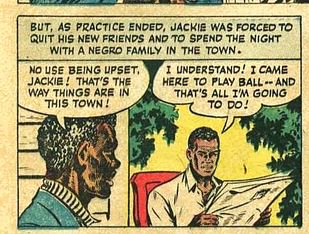
The Fawcett Jackie Robinson Comic no 1 goes on and on that the color barrier in baseball was not easily broken
Here an exhibition game is never played because of an ultimatum by the police chief
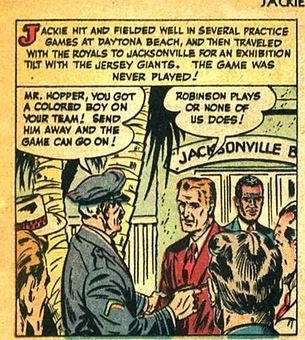
The 1949 Fawcett Jackie Robinson looking at the level of hostility Jackie Robinson faced as he played in the minor leagues before the jump to the majors
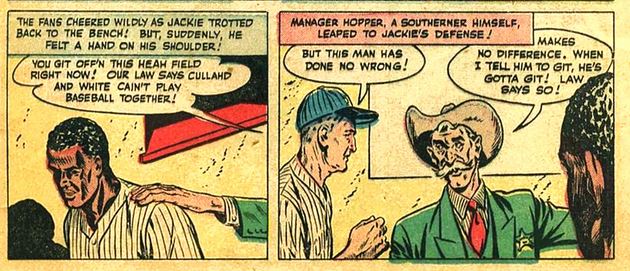
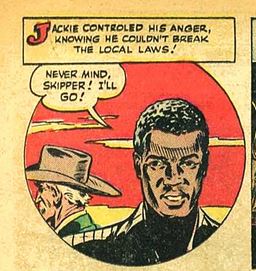
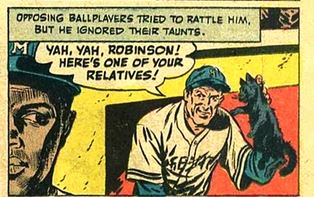
The moment Jackie Robinson makes the Big Leagues and becomes a Brooklyn Dodger
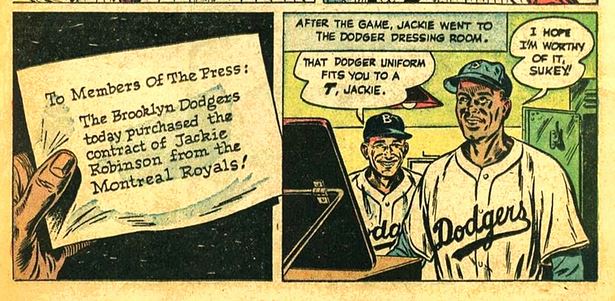
The comic shows Jackie Robinson's shaky start with the Brooklyn Dodgers.
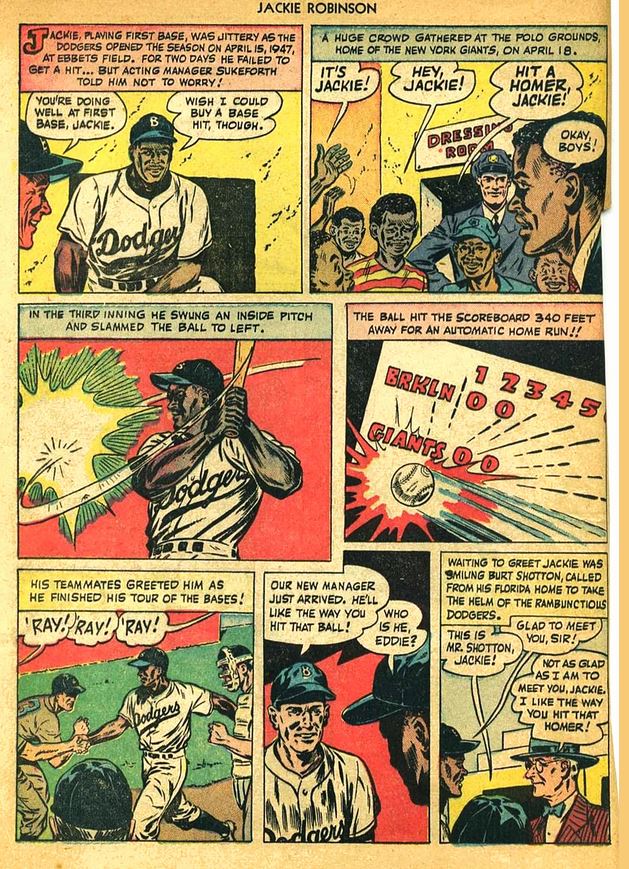
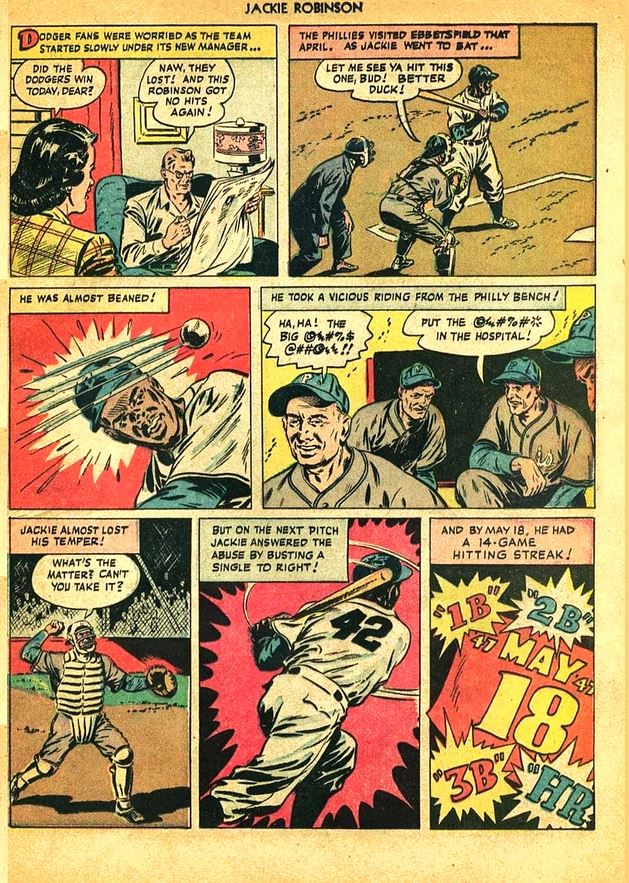
And yet more hostility with a rumor of another baseball team threatening to strike because of Jackie Robinson.
This is the United States of America, and one citizen has as much right to play baseball as another
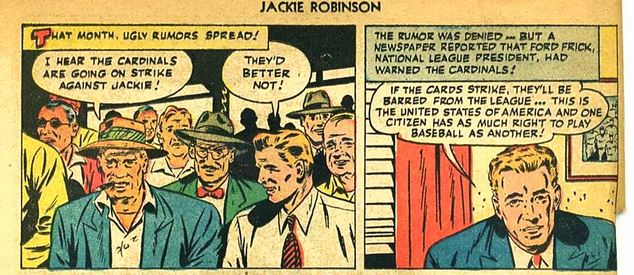
As fate had it, the Dodgers won the league championship by beating the Cardinals, and Jackie played wonderfully, ending game 3 with a fabulous catch of a fly ball
The whole series is chronicled 'superhero style' by Fawcett
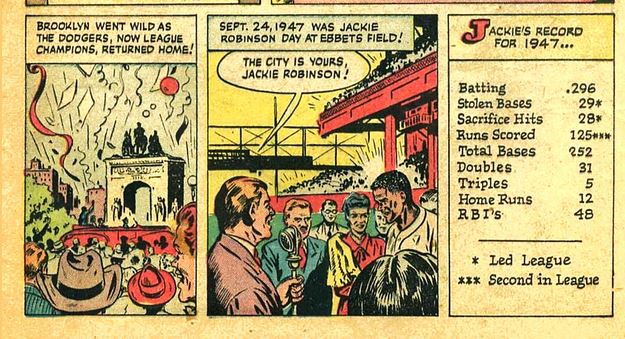
In the last pages of Fawcetts 1949 Jackie Robinson comic no 1, we go through Jackie's first few years with the Dodgers - including more hostility as well as others pushing back against that hostility
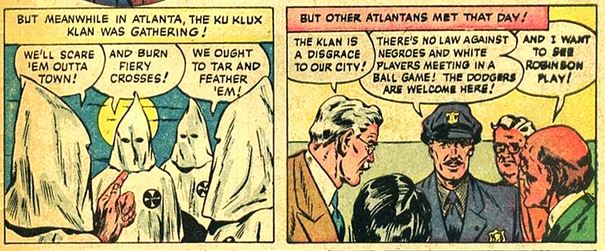
The last page of Fawcetts 1949 Jackie Robinson book
He is loved by every fan in America for his courage,
tact and brilliance,
on the field and off
